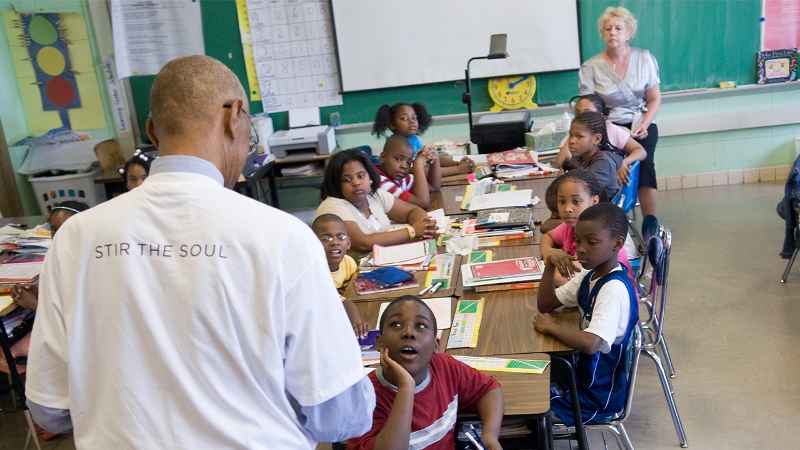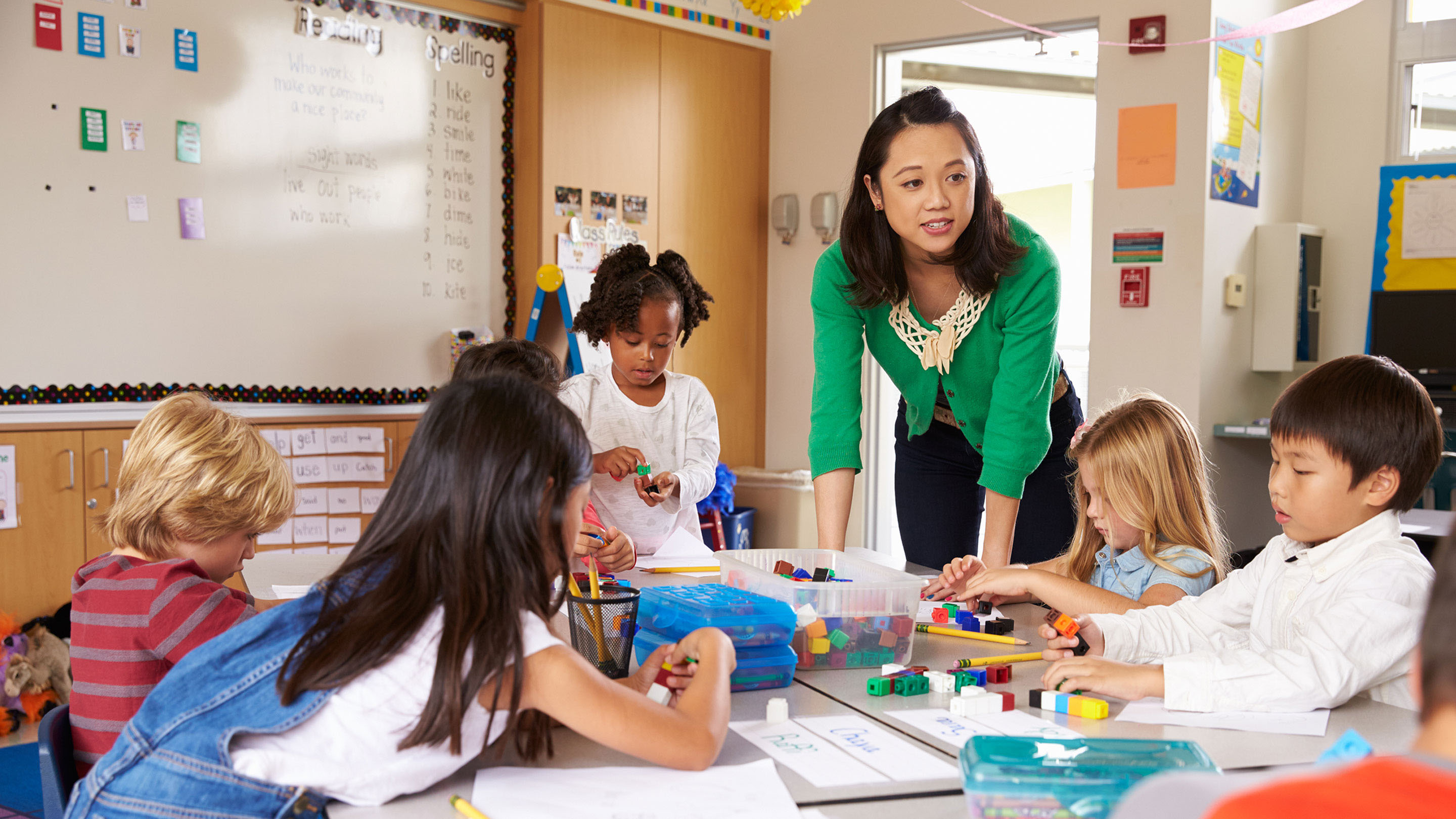Tailored Primary Science Tuition Singapore for Your Child’s Success
Tailored Primary Science Tuition Singapore for Your Child’s Success
Blog Article
Checking Out the Various Mentor Techniques in Main Scientific Research Education And Learning Today
The landscape of primary science education and learning is advancing, with different teaching strategies obtaining importance in modern classrooms. Inquiry-based knowing, hands-on experiments, and the assimilation of modern technology are redefining just how teachers engage young minds. Furthermore, collaborative strategies and separated direction are being utilized to accommodate the diverse needs of pupils, improving both involvement and understanding. As we analyze these methods, concerns arise regarding their effectiveness and the effects for future academic practices. What might these changes in method mean for the future generation of students?
Inquiry-Based Discovering
Inquiry-Based Discovering (IBL) is a pedagogical method that urges pupils to discover clinical concepts via doubting, examination, and hands-on testing. This method stresses the role of trainees as energetic participants in their discovering, promoting important reasoning and analytical skills. By involving with real-world concerns, students come to be interested and motivated, which boosts their understanding of clinical principles.
In IBL, instructors work as facilitators, directing pupils as they navigate their inquiries instead of providing details straight. This student-centered technique permits differentiation, accommodating numerous discovering rates and styles. Students create skills in developing theories, designing experiments, and assessing data, which are essential for scientific literacy.
Additionally, IBL fosters cooperation among pupils, urging them to share concepts and searchings for. This collective inquiry advertises social abilities and a feeling of community within the classroom. Additionally, the procedure of query motivates durability, as students learn to welcome failure as a stepping stone toward understanding.
Hands-On Experiments
Hands-on experiments are a vital element of effective scientific research education, enhancing the concepts of inquiry-based understanding. These experiments allow pupils to involve straight with scientific principles, cultivating a deeper understanding via experiential understanding. By controling materials and observing outcomes, young students can comprehend abstract theories in concrete means.
Such activities promote crucial reasoning and analytic skills, as trainees hypothesize results, conduct experiments, and examine results. This process encourages them to ask questions, fine-tune their understanding, and create a clinical frame of mind. Furthermore, hands-on experiments can be customized to diverse learning styles, making sure that all students have the possibility to involve meaningfully with the content.
Additionally, hands-on experiments typically motivate collaboration among peers, advertising teamwork and communication abilities. Operating in groups allows pupils to share concepts, review findings, and find out from each other, which enhances their total instructional experience.
Incorporating hands-on experiments right into the primary scientific research educational program not just enhances the learning setting however likewise cultivates a lifelong interest in science. By actively joining their education, pupils are a lot more likely to establish an enthusiasm for scientific inquiry that extends past the classroom.

Innovation Assimilation
Integrating technology right into key science education has actually become significantly vital in fostering pupil interaction and improving learning results. Making use of digital tools, such as interactive simulations, virtual laboratories, and educational software, offers pupils with chances to explore clinical ideas in cutting-edge ways. These resources promote a much deeper understanding of intricate subjects by enabling students to visualize and control variables that would be unwise in a typical class setting.
Moreover, technology integration motivates personalized discovering experiences. Students can progress at their own speed, taking another look at difficult principles with multimedia resources, which deal with various understanding styles. This adaptability not only sustains private development but additionally cultivates a sense of autonomy in learners.
Furthermore, technology functions as a bridge to real-world scientific research, attaching students with present study and expert contributions. Access to clinical journals and on the internet data sources widens trainees' perspectives on scientific inquiry and fosters crucial assuming skills.
Collaborative Discovering
Joint discovering plays a vital role in primary science education and learning by promoting team effort and interaction skills among trainees. This method motivates learners to function together, share knowledge, and participate in analytical, which enhances their understanding of scientific principles. By taking part in group activities, students find out to verbalize their concepts, listen to diverse perspectives, and bargain options, every one of which are important skills in both real-world and scholastic contexts.

Study indicates that collaborative knowing can cause increased inspiration and interaction in science subjects, as trainees discover enjoyment in shared experiences (primary science tuition Singapore). In addition, this strategy prepares trainees for future collective ventures, outfitting them with the abilities required for efficient synergy in college and specialist this post settings. Inevitably, embracing collective discovering in key science education can dramatically enhance the understanding experience and advertise a much deeper understanding of scientific inquiry
Separated Instruction

Distinguished guideline can manifest in different check my blog means, such as differing the web content, procedures, or products of discovering. Educators might make use of tiered assignments that offer varying levels of complexity, permitting students to work at their corresponding preparedness levels. Additionally, adaptable grouping strategies can facilitate collaboration amongst pupils with different capacities, cultivating peer understanding.
Evaluation plays a vital role in this technique, as it informs direction and aids teachers comprehend each pupil's distinct demands. Developmental evaluations, such as monitorings and quizzes, can guide instructors in readjusting their strategies to enhance learning outcomes. primary science tuition Singapore. Ultimately, by executing set apart guideline in key science education, teachers can cultivate an extra fair and efficient discovering environment, equipping all students to reach their full potential in understanding scientific sensations
Conclusion
In summary, the diverse teaching techniques in main scientific research education and learning, consisting of inquiry-based understanding, hands-on experiments, innovation assimilation, collaborative discovering, and separated instruction, jointly contribute to an extra reliable discovering atmosphere. These methods promote critical reasoning, analytic skills, and a much deeper comprehension of clinical concepts. By carrying out these methods, instructors can develop engaging and encouraging classrooms that deal with the diverse needs of students, eventually promoting a long-lasting rate of interest in science and enhancing academic accomplishment.
Inquiry-Based Discovering (IBL) is a pedagogical strategy that urges trainees to check out clinical ideas via questioning, examination, and hands-on experimentation.Collective learning plays an essential role in primary scientific research education by cultivating teamwork and interaction skills among trainees.Research shows that joint learning can lead to boosted motivation and engagement in science subjects, as students discover pleasure in shared experiences.In click promoting a comprehensive discovering environment, separated direction arises as an essential strategy to fit the varied demands and capacities of pupils in primary science education. Eventually, by applying set apart direction in key science education, teachers can cultivate a much more efficient and equitable discovering setting, empowering all students to reach their full possibility in recognizing scientific phenomena.
Report this page